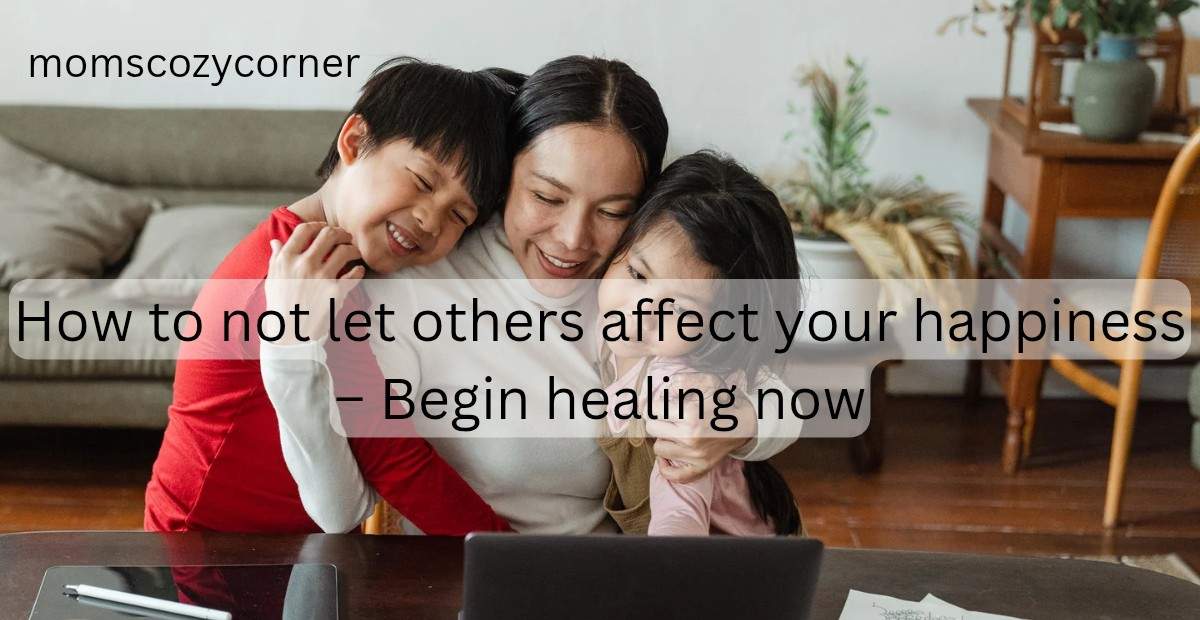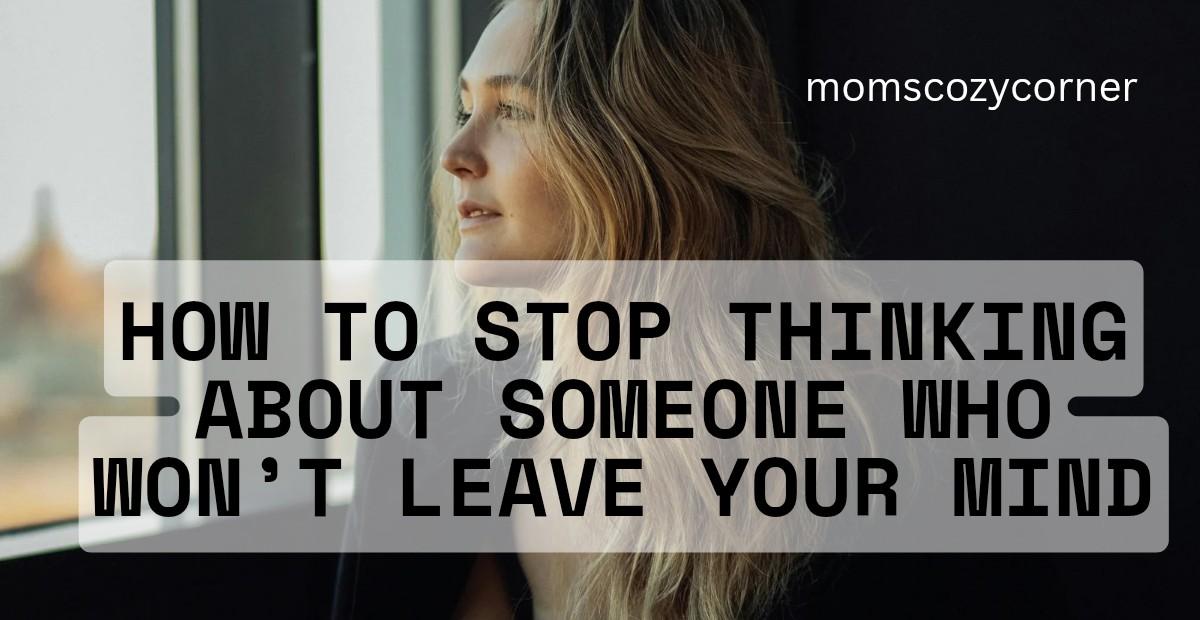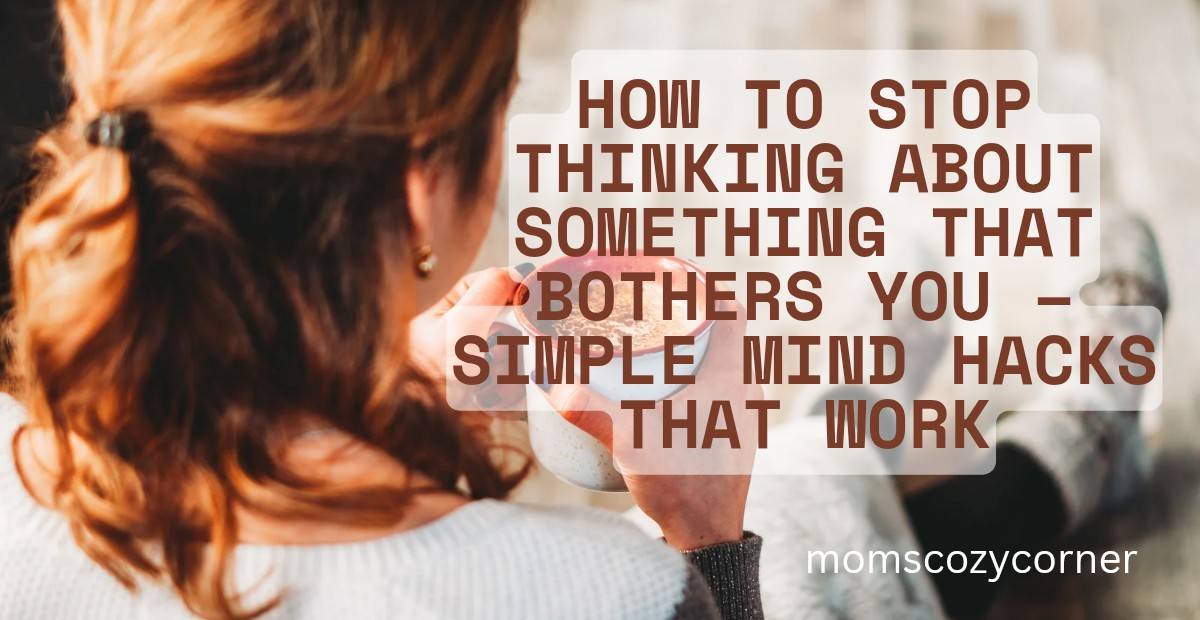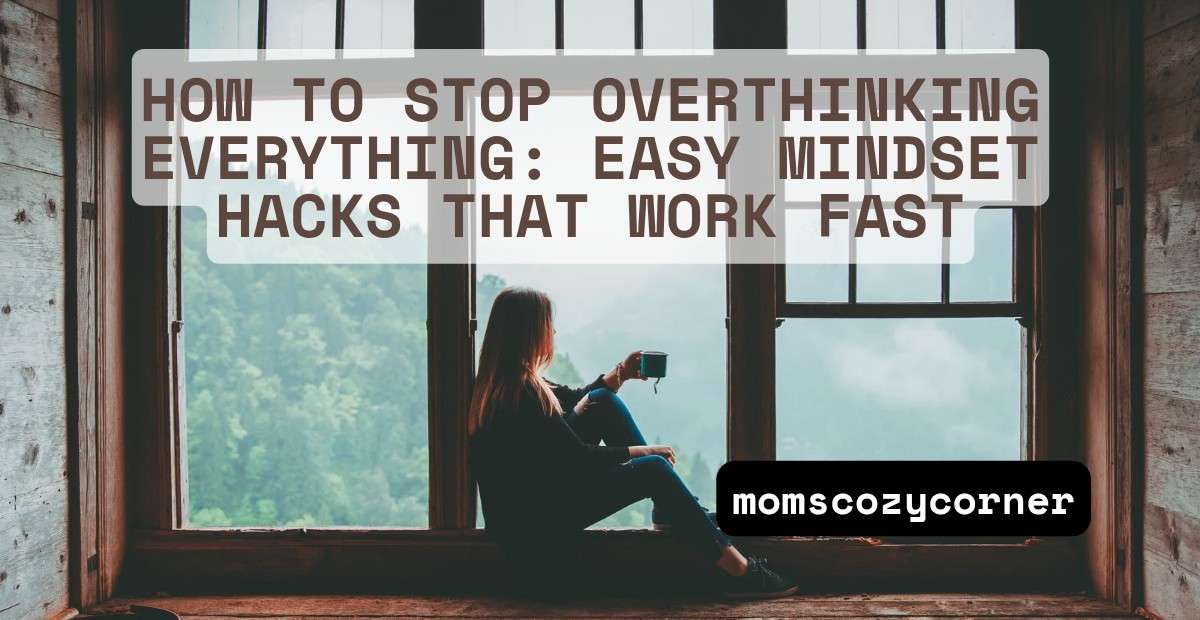How To Not Let Others Affect Your Happiness – A Gentle Guide For Moms
Introduction
You wake up early, full of energy, and your home feels joyful. The kids laugh, breakfast is done, and the vibe is pure happiness—until that one call. Someone says a friend or relative talked behind your back. You say, “It doesn’t bother me,” but deep down… it does. The thought keeps circling, draining your peace, and suddenly your joy’s gone. I’ve been there too, Mama. Let’s talk about how not to let others affect your happiness—even when they try to shake it.

Why We Let Others Affect Us
As kids, we didn’t care what anyone thought. My daughter’s reaction to a rude comment about her dress—”Well”, I like it,” then off to play—hit me. I used to be like that. Now, I overthink every little thing: “What will they think?” Somewhere, we gave others too much power over our feelings. It crept in as we grew.
#Constant Judgment: The Silent Thief
Sometimes, it’s not what’s said, but how. My lean elder daughter loves food, even bitter gourd. But when she skipped milk after homemade chips, I heard, “You’re not feeding her properly!” “Look how thin she is!” “A real mom would insist!” It stung. I knew she was healthy, but those words stuck, stirring undeserved guilt.
“Judgment doesn’t need a loud voice. Sometimes, it whispers in your mind long after the conversation ends.”
This is how happiness fades; we doubt ourselves, even when doing fine.
#Comparison Overload: The Social Media Trap
We once compared ourselves to neighbors. Now, it’s strangers online. Perfect playrooms, meals, calm moms—we scroll, forgetting it’s their highlight reel. We think, “She feeds all organic!” “She does crafts daily!” “And she smiles through tantrums!” Suddenly, joy slips. We forget exhausted mamas behind cute posts—and how these constant comparisons can affect our happiness without us even realizing it.
“The truth? You’re not failing—you’re just watching someone else’s filtered life while living your real one.”
So, next time you see that “perfect” mom, breathe. Remind yourself: “I’m doing what’s best for my family. And that’s enough.” You’re not alone.
#Feeling Invisible at Home
Moms do so much out of deep love: late-night projects, refilling prescriptions, and caring for elders. Not for thanks, but because we care. Yet, sometimes it stings.
“It’s not about needing applause. It’s about knowing someone notices the love behind what we do.”
I tried to limit my diabetic in-law’s sweets, out of love. I heard, “Let her enjoy. Don’t be so strict.” No one saw my care. It hurts when efforts go unnoticed. That silence chips away at joy.
“We don’t want a trophy—just a little recognition that we matter too.”
When love feels unseen, trust gets shaky. If you’re navigating that fine line, here’s more on how to deal with trust issues without pushing love away—so you can protect your heart without shutting out the people you love.
Hidden Triggers We Don’t Realize
It’s not always rude comments. Little things, quiet moments, or habits slowly drain joy without us noticing.
#People-Pleasing Without Knowing It
Saying “yes” when you mean “no” drains you. My elder daughter’s teacher asked for a last-minute article cover. I had no time—two kids, chores. But I said yes, not wanting to disappoint. I got it done but paid the price: short with kids, exhausted, and upset. All because I couldn’t say “No.” It’s been a pattern, and I’m passing it down. I’m changing. If you’ve ever felt this too, here’s something that dives deeper into why we sometimes snap at the people we love the most—and how to heal from it.
“People-pleasing feels kind in the moment, but it slowly empties your cup.”
Setting boundaries isn’t selfish; it’s protecting your peace and happiness.
#Mixed Messages That Mess with Your Confidence
Confusing words hurt too. You try to do right, but whatever you choose seems wrong.
I asked my father-in-law if he’d come for a family function to plan cooking. He said, “Decide on your own. Why ask me everything?” It stung. Later, after making a small chicken gravy and asking my husband to buy more mutton because it wasn’t enough for everyone, my father-in-law told me I shouldn’t have. “This would’ve been enough.
“Two days ago, I was told to make my own decisions. Today, I’m wrong for doing just that.”
This back-and-forth breaks confidence. These kinds of mixed messages slowly affect your happiness, making you second-guess every decision—even when your intentions come from love.
“It’s hard to grow confidence in a place where you’re judged no matter what you do.”
These mixed signals may seem small, but they carry heavy emotional weight.
#Perfectionism and Guilt
Sometimes, our own pressure drains joy. Moms try to be perfect in tiny things: perfect pancakes, outfits, and school projects. This invisible weight steals peace, and when things go wrong, guilt sneaks in.
It looks like ironing a shirt “just right” and getting upset over a wrinkle, beating yourself up for a slightly burned pancake, feeling bad about spilled milk, endlessly searching for a “perfect” song, then feeling crushed when kids don’t perform, and doing everything “for them” but feeling sad when efforts go unnoticed.
“You don’t have to be perfect to be loved. Your messy, real, doing-your-best self is more than enough.”
Our kids need us—present, loving, real. A spill or a burnt pancake doesn’t define you. Letting go of perfection creates joy and grace.
“Mama, perfection is a myth. But your love? That’s the real magic.”

Set Emotional Boundaries Without Being Mean
Setting emotional boundaries is hard. Moms feel available all the time for everyone. But constant availability for others drains your own space. At first, it might feel rude or selfish; you might feel guilty. But you’ll realize it’s not mean or selfish. It’s necessary.
“Protecting your peace is not rude. It’s responsible.”
Practice makes it easier, preventing stress and burnout. One small way:
#Don’t Answer Calls or Texts When You’re Drained
You know those mornings: spilled milk, kids refusing to brush, laundry piled up, running late. You finally sit down, exhausted, and ding! A call. A text. Another demand. Even from loved ones.
You don’t have to respond right away. If overwhelmed, let it sit. You’re not ignoring them; you’re giving yourself a minute to breathe. Because reacting when you’re emotionally drained can affect your happiness and the way you show up for your family. Pause. Sip coffee. Call back when you’re calmer.
“Answering from a place of peace helps you avoid talking from a place of pain.”
They’ll understand if they truly care. I’ve snapped or sounded cold answering my mom when I wasn’t okay. Waiting allowed a better talk.
“Sometimes, the kindest thing you can do is wait until you can speak with kindness.”
#Practice the Smile and Ignore Technique
Not every battle’s worth fighting. For peace, a smile and graceful step back are best. This isn’t weakness; it’s choosing your energy wisely.
“Peace is not the absence of chaos, but the choice to not invite it in.”
I once argued with a family member who constantly tried to show she was better, in my own home. I snapped. It drained me for days. She twisted my words. I replayed it, wishing I’d just smiled and ignored her. That decision could’ve saved so much exhaustion.
Sometimes smiling and ignoring is self-care in disguise. You don’t have to react to everything. “Letting it slide “takes practice. Be mindful of when to ignore.
“Just because you didn’t clap back doesn’t mean you didn’t notice. It means you chose peace over proving a point.”
Don’t let anyone walk over you. Smile and ignore doesn’t mean permanent silence. Speak up when it matters. Protect your values. But not every insult needs your mental energy. Balance is everything, Mama.
#Gracefully Deflect Criticisms Without Explaining Much
When that family member twisted my words, other ladies called. I didn’t give a long explanation. I simply said, “I didn’t say anything bad. She’s just testing my words. I don’t feel the need to explain myself to anyone.” That was it.
Overexplaining only drains your energy. People who understand will. Those who judge won’t care what you say. And when trust breaks in relationships, healing takes time. The weight of broken trust can affect your happiness, making it harder to feel safe and connected again. If you’re in that place, here’s more on how to rebuild trust with people who’ve hurt you—and what healing really looks like.
“Explaining yourself to people who’ve already made up their mind is like pouring water into a cracked cup.”
If someone’s criticizing you:
- Keep it short and graceful.
- Don’t get pulled into proving your worth.
- Save your words and peace for those who value them.
“Sometimes, walking away without defending yourself is the loudest kind of power.”
Let your silence show strength.
#Emotional Shielding: Bounce Off Instead of Soaking It In
People say things that ruin your mood. But “You only sink when you start soaking in the wrong opinions.” Don’t let every comment stick. Build your emotional shield with support from people who truly matter.
If my husband backs me up, I don’t care what others think. I let it go faster. Seeking validation from random people who don’t know me just spirals me.
To bounce off negativity:
- Focus on voices that love you—spouse, kids, true friends.
- Don’t give your peace to people who haven’t earned it.
- Understand not everyone will “get” you. That’s fine.
But if the connection with your partner feels shaky, it’s even harder to stay strong. Here’s something that might help if you’re wondering how to reconnect with your partner when the distance feels heavy.
“The people who matter won’t make you feel small. The rest? Not your problem.”
Next time you overthink words, ask, “Would I even care about this if my best friend or partner said, ‘Hey, you’re doing just fine’?” If not, drop it. Protect your peace; it’s your most valuable possession.
Final Thoughts
The atmosphere we create matters most. The energy you allow into your space can affect not just your mood, but your family’s happiness too. Filling your space with joy, love, and calm energy attracts more of the same. Your home feels lighter, people around you feel better, and that happy energy bounces back.
“Positive energy is contagious—and you’re the one setting the tone.”
We can’t stop negative people, Mama. Life isn’t perfect. But these tips will help you bounce off their energy instead of soaking it in.
Thanks for reading. If anything helped you feel better, my heart is full. Share your story in the comments! Your words mean a lot.
I write these posts to help fellow mamas. Knowing it helped gives me the biggest push to write more.
Thanks again, sending hugs.
Free Journal Page to Protect Your Peace
Need a little space to breathe and reset? This one-page journal is here to help you slow down, reflect, and take back control of your happiness. Just print it out and use it whenever someone’s words or actions feel too heavy.




